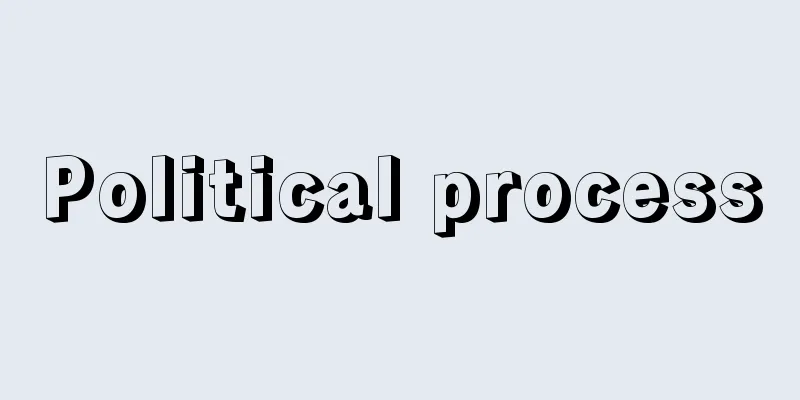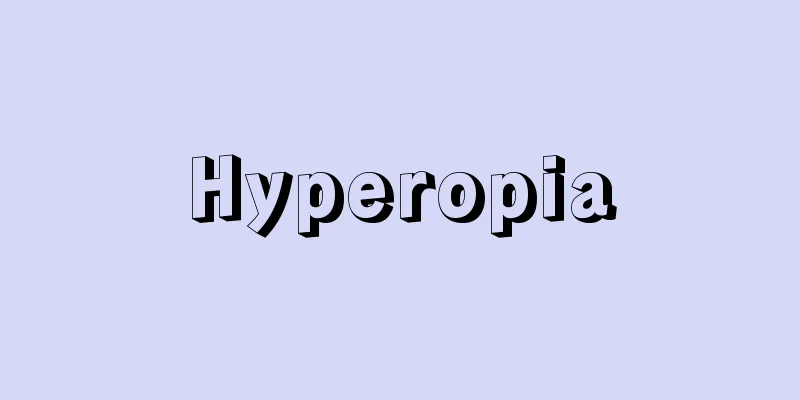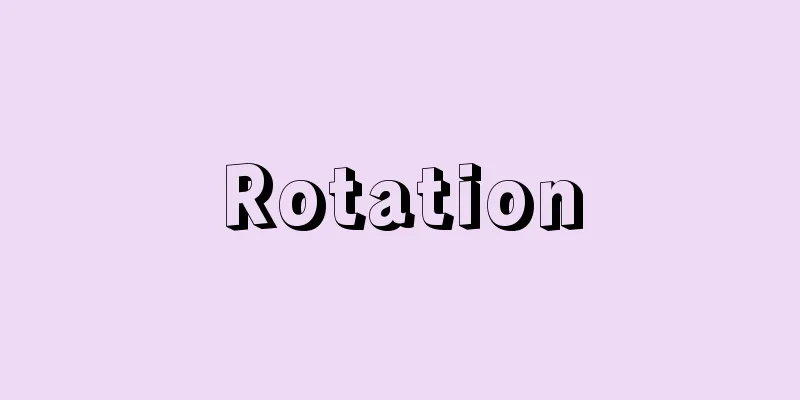Political process

|
Researchers who try to study and analyze politics by emphasizing the dynamic aspects of political phenomena such as "movement" and "change" tend to consciously and proactively use the term "political process." This shows an attitude of not narrowly limiting the political world to formal, static governance structures, but of attempting to dynamically grasp and analyze the essential political impetus of the interaction of interests in a broad context. The background to the emergence of the perspective of the political process, that is, "a process of continuous interaction between the struggle and confrontation of interests (divisive power) and the adjustment and integration (consensus-building power)," was the expansion of democracy (the expansion of the mass base of political power) and the expansion of the political sphere. The huge number of newly entered masses poured various desires and expectations into the political sphere, and organized themselves to ensure their realization. The era of organized mass democracy had arrived. Each interest, with the backing of organizations, began to seek the realization of its interests in politics. The political sphere became a system of struggle between groups. Above all, the political system had to adjust and integrate conflicting interests and desires. The traditional perspective of political analysis, that is, the static interpretation of formal political institutions, no longer had sufficient explanatory power. Political scientists began to use the term political process around the time of World War I at the beginning of the 20th century, but the pioneering work that developed the perspective of the political process into a theoretical field was A. Bentley's The Political Process, published in 1908. This work was too innovative for the academic climate of the time, which was heavily weighted toward institutional theory, and was not well received. However, it was reevaluated in D. B. Truman's The Political Process, published in 1951, and its theoretical excellence became widely recognized. The political process can be defined as the process by which citizens' interests, claims, and demands are collected and expressed in the policy-making arena and transformed into output (political process in the narrow sense). However, in today's world where change is the norm, there is a tendency to broaden the scope to include the candidate nomination process, the electoral process (voting, political parties), the negotiation and adjustment process (interest groups, mass movements, citizen movements), the legislative process (parliamentary action), the administrative process (bureaucrats), the judicial process (courts), and the feedback process (public opinion, political awareness, the media, political culture). [Nobuf Okazawa] [References] | |Source: Shogakukan Encyclopedia Nipponica About Encyclopedia Nipponica Information | Legend |
|
「運動」「変動」という政治現象の動態的側面を強調して政治について考察・分析しようとする研究者は、政治過程という語を意識的・積極的に使用する傾向がある。そこには、フォーマルな静態的な統治構造のみに政治の世界を狭く限定せず、利益の相互作用という政治の本質的契機を広大な文脈で動態的にとらえて分析しようとする姿勢が読み取れる。 政治過程、つまり「利益の抗争・対立(分裂力)と調整・統合(合意形成力)の途絶なき相互作用の過程」という視点が登場した背景にあるのは、デモクラシーの大規模化(政治権力の大衆的基盤拡大)と政治範域の拡大であった。新規に参入した膨大な大衆は、政治の場に、多様な欲望・期待を噴射させ、その実現を確実なものとするために自らを組織化した。組織されたマス・デモクラシーの時代が到来した。それぞれの利益は、組織を背景にしてその実現を政治に求めるようになった。政治の場は、集団と集団が対決する奪い合いのシステムとなった。政治システムはなによりも、相対立する利益・欲望を調整・統合しなければならなくなった。伝統的な政治分析の視点、つまりフォーマルな政治制度の静態的解釈という視点では、もはや十分な説明能力をもちえない。 20世紀の初頭、第一次世界大戦ごろから政治過程という語を政治学者が使用するようになったが、政治過程という視点を一つの理論的フィールドにまで発展させたパイオニア的業績はA・ベントリーが1908年に発表した『統治過程論』であった。この著作は、制度論偏重の当時の学問状況にあってはあまりにも斬新(ざんしん)であったため、受け入れられなかった。だが、1951年にD・B・トルーマンが発表した『政治過程論』で再評価され、その理論的秀逸性が広く認められることになった。 政治過程は、市民の利益・主張・要求が政策決定の場に集約・表出され、アウトプットに変換されていく過程と定義できる(狭義の政治過程)。だが、変動を常態とする今日では、視野を拡大し、候補者指名過程、選挙過程(投票、政党)、交渉・調整過程(利益団体、大衆運動、市民運動)、立法過程(議会行動)、行政過程(官僚)、司法過程(裁判所)、フィードバック過程(世論、政治意識、マスコミ、政治文化)を包摂しようとする傾向がある。 [岡沢憲芙] [参照項目] | |出典 小学館 日本大百科全書(ニッポニカ)日本大百科全書(ニッポニカ)について 情報 | 凡例 |
Recommend
Atlas (Legend) - Atlas
…It was larger than Asia and Libya (Africa) combi...
Apteryx haastii (English spelling) Apteryxhaastii
… [Hiroyuki Morioka]. … *Some of the terminology ...
Cochran, CB
…In the 20th century, the erotic dances of dancer...
Technological progress
Generally speaking, it refers to an increase in p...
Osarizawa Copper Mine Incident
...A mine in Osarizawa, Kazuno City, Akita Prefec...
Working hours - hours of work English
Generally speaking, it is the time spent working....
Leveling machine
…Rake dozers are often used to remove obstacles i...
Jiangxi School of Poetry
A school of poetry in the Song Dynasty of China. T...
Sawing - Seizai (English spelling)
This is the process of cutting (processing) logs ...
Palilia
…She is said to be both a god and a goddess. Her ...
Emerson, R.
...The schematic diagram of this reaction pathway...
Shiro Inoue - Inoue Shiro
Year of death: Bunka 9.5.16 (1812.6.24) Year of bi...
Topiaria
…Ancient Roman houses were basically built with r...
Sock knitting machine - Kutsushitaamiki (English name) hosiery knitting machine
The first treadle stocking knitting machine was in...
Maternal and Child Health Handbook - Boshitecho
〘Noun〙 The former name of the "Boshikenkotech...









